Lucid Dream Baseball League Rules
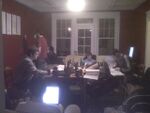
|
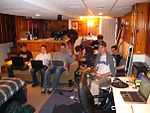
|
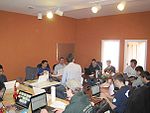
|
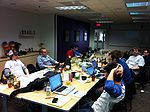
|
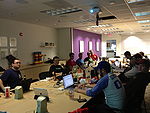
|
|
| A study in technological advances of cell phone cameras. | ||
Lucid Dream Baseball (LDB) is a fantasy baseball league designed to mirror owning and managing a Major League Baseball franchise as nearly as possible. LDB principally accomplishes this two ways: (1) providing each league member deep organizational tiers that allow all types of players, from marquee superstars to young prospects and (2) calculating player performance from statistics that better measure player performance than traditional fantasy baseball systems. LDB also offers other features that better simulate team management than traditional fantasy baseball systems, including a yearly budget, trades that involve assets other than players, rules for internal team management that mirror MLB, among others.
Each LDB league member will be the GM of his or her own franchise, in complete control of team payroll, roster composition, game lineups, and management of the farm system.[1] Financial constraints have been designed to resemble those of the top-tier of MLB organizations, and GMs will have the ability to engage in realistic transactions and roster moves to put their teams in the best position to win. Given the unique features LDB offers, LDB GMs have a higher responsibility to manage their team than they would in an average fantasy league.[2]
Organizational Structure
Finances
Keepers and Drafts
The Game
Internal Transactions
External Transactions
- Designation for Assignment
- Mid-Season Free Agents
- Waiver Claims
- Trades
- Bets Involving LDB Assets ("Friendly Wagers")
Rule Changes, Disputes, and Contingencies
Future Rule Changes
Special Rules for Shortened Seasons
- 2021 Draft
- H/S Contracts
- K/HTH Contracts
- RFA Contracts/Rights
- Trades
- McQueeney Penalties
- Roster Requirements
Legacy Materials
- ↑ However, a GM may opt to appoint a co-manager. Co-managed teams have one vote on trade vetoes, rule changes, etc.
- ↑ In re Robinson Cano's Contract Status, 2012 LDB 1 (Feb. 16, 2012).